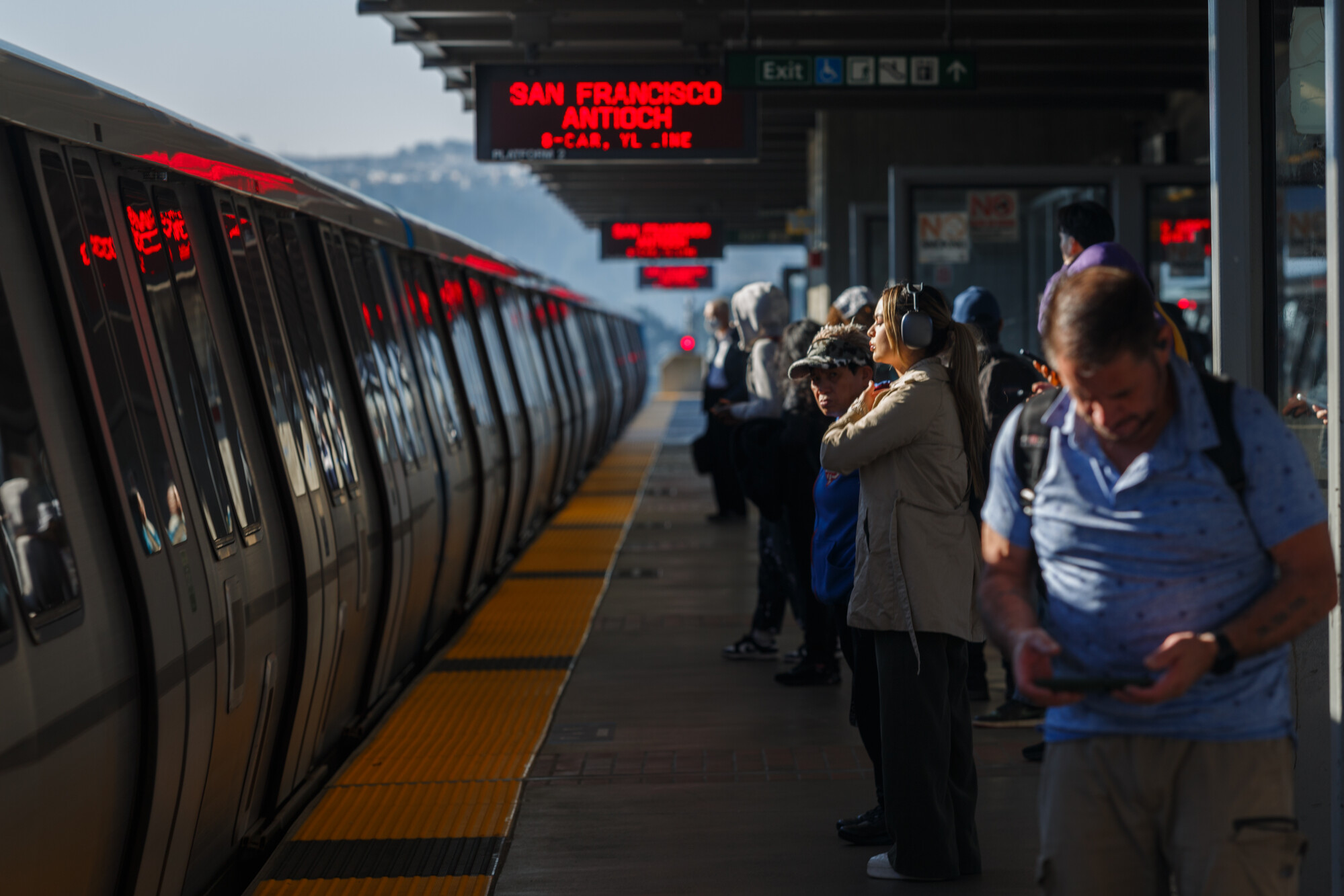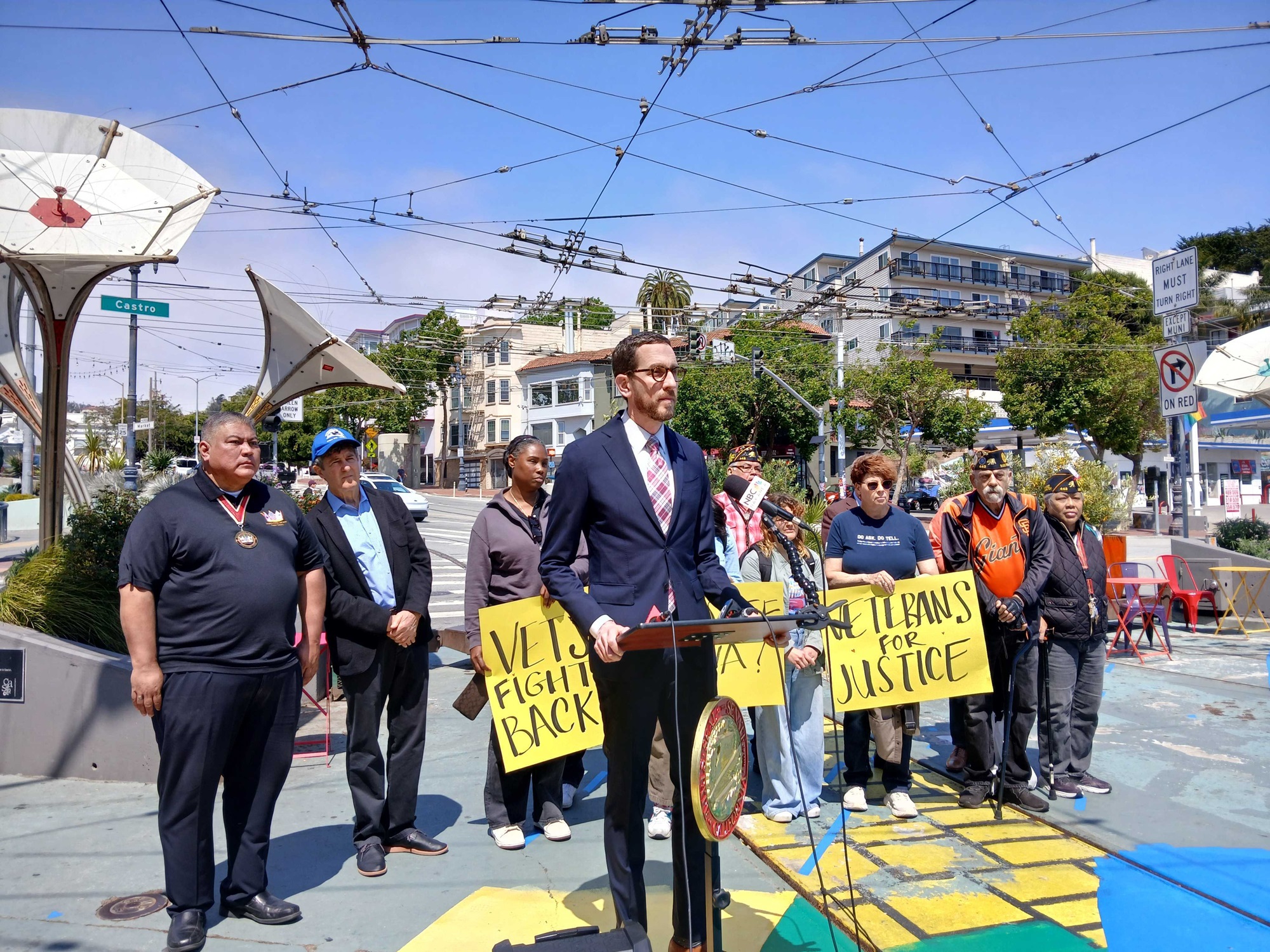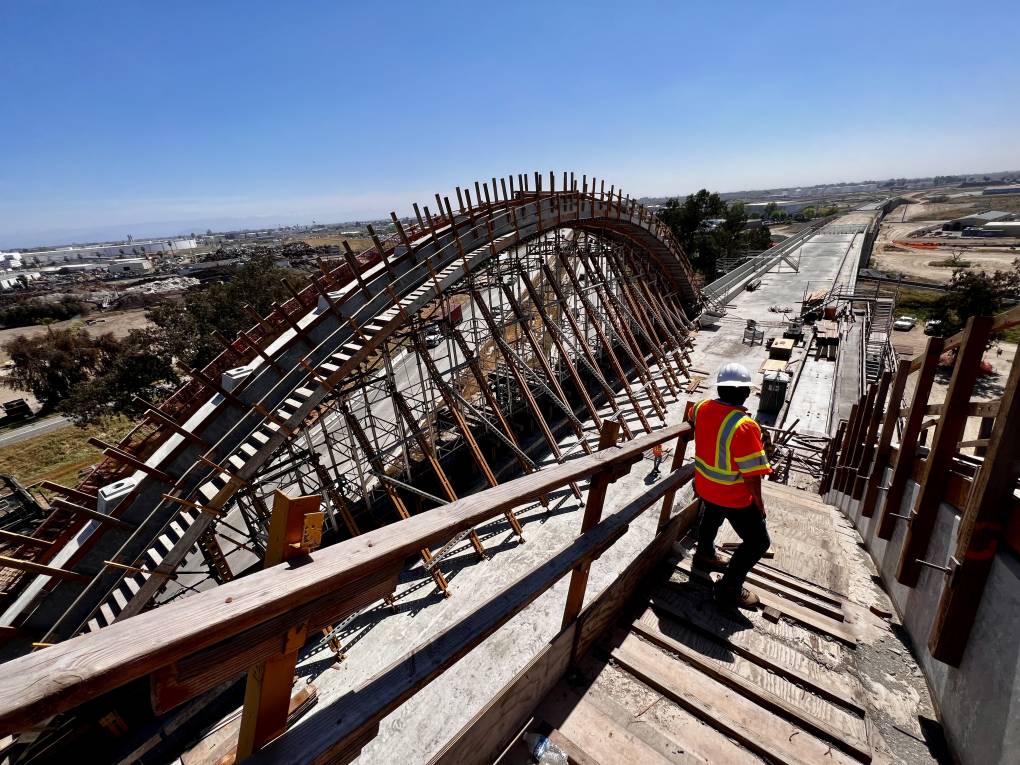A recent analysis for the Metropolitan Transportation Commission found that collectively, BART, Muni, AC Transit, Caltrain and Golden Gate Transit face a total deficit of $3.7 billion in the five fiscal years beginning in July 2026.
BART and San Francisco’s Muni system account for $2.9 billion of that total, with both facing staggering shortfalls — $380 million for BART, $320 million for Muni — in fiscal 2026–27.
If those deficits are not solved, BART said that it might have to suspend service on two of its five lines, reduce service on those runs to just one or two trains every 60 minutes, shorten daily service hours and shut down some stations as a result. Muni leaders have warned that the agency might need to suspend service on 20 bus lines, cut the frequency of service by 50% and end service at 9 p.m.
To avert those cuts, Wiener, Arreguín and Assemblymember Catherine Stefani, D-San Francisco, are working with the MTC and officials across the Bay Area to craft legislation to authorize a November 2026 ballot measure that would aid BART, Muni, AC Transit, Caltrain and other operators.
The bill, SB 63, recently passed the Senate and will be taken up next by the Assembly Transportation Committee. It would impose additional sales taxes in San Francisco, Alameda and Contra Costa counties to support day-to-day operations and to improve regional transit connections. The MTC has estimated that the sales taxes — a half-cent in Alameda and Contra counties and up to one cent in San Francisco — would raise up to $550 million a year.
The bill also allows San Mateo and Santa Clara counties to opt in to the ballot measure, a decision each county would have to make by Aug. 11.



